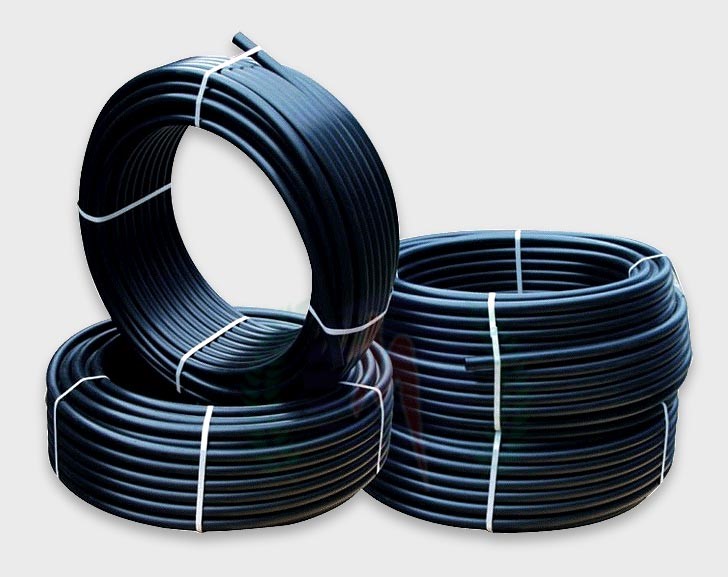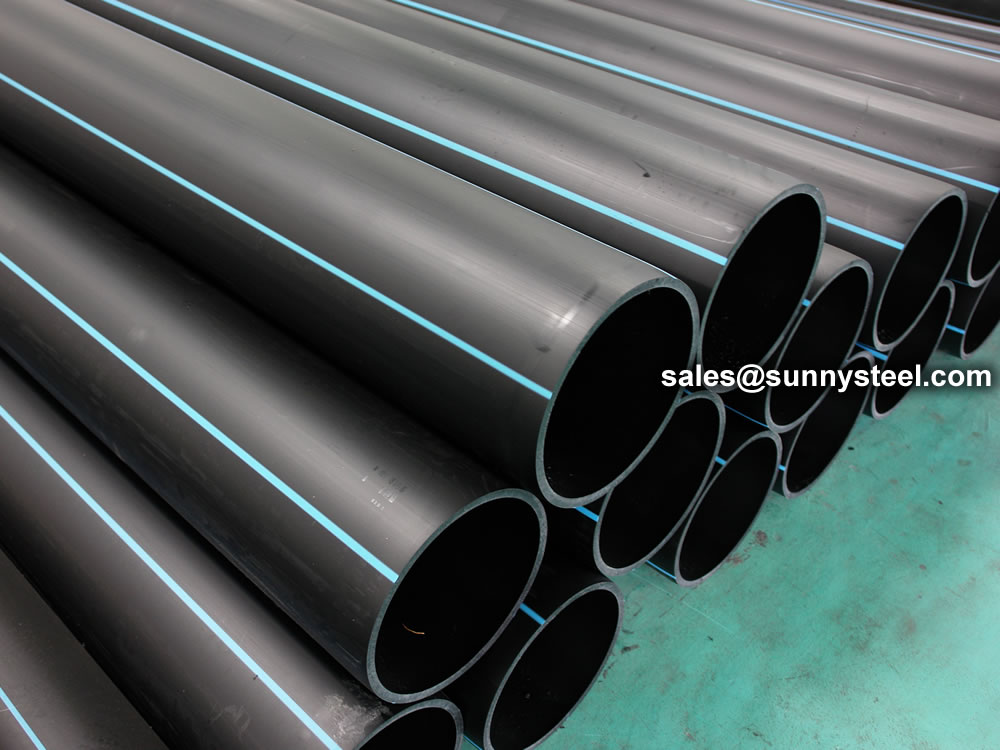Recognizing the Secret Advantages of HDPE Pipe for Water and Wastewater Monitoring
Using HDPE pipe in water and wastewater administration presents various advantages that merit factor to consider. Its phenomenal durability and long lifespan make it a preferred selection for several jobs. Furthermore, the material's resistance to rust and chemical damage boosts its dependability in different environments. The advantages prolong beyond just longevity and resistance. hdpe pipe suppliers Midland TX. Discovering its cost-effectiveness and environmental influence exposes much more engaging factors for its extensive fostering in contemporary framework
Exceptional Toughness and Longevity

HDPE pipe stands apart for its exceptional sturdiness and long life, making it a preferred choice in water monitoring systems. Constructed from high-density polyethylene, these pipes can stand up to substantial stress and stress, making sure trusted performance gradually. Their durable nature enables them to sustain severe ecological problems, consisting of temperature level variations and dirt movements, which can cause other materials to stop working.
The life expectancy of HDPE pipes typically surpasses 50 years, supplying a cost-efficient solution for municipalities and industries alike. Additionally, the product's light-weight residential properties simplify setup, minimizing labor expenses and timeframes. This sturdiness reduces the need for regular repairs or replacements, better improving its financial appeal.
In water management applications, the integrity of HDPE pipelines indicates fewer interruptions and improved service connection, making them important to sustainable framework advancement. The mix of longevity and durability solidifies HDPE's duty as a foundation in effective water monitoring options.

Resistance to Corrosion and Chemical Damages
While several materials succumb to rust and chemical damages in time, HDPE pipelines show impressive resistance, making them optimal for numerous water administration applications. This strength stems from the molecular structure of high-density polyethylene, which is naturally non-reactive and does not corrode like steels or weaken from exposure to extreme chemicals. Because of this, HDPE is highly efficient in settings with aggressive compounds, such as wastewater systems that might contain acids, bases, and organic solvents.
Furthermore, HDPE pipelines can hold up against ecological elements such as dirt level of acidity and saline problems, further enhancing their suitability for diverse applications (Pipe Manufacturing Midland TX). Their capability to preserve architectural stability gradually minimizes the threat of leaks and failings, which is vital in ensuring the security and dependability of water distribution and wastewater monitoring systems. The resistance to rust and chemical damage significantly contributes to the overall performance and durability of HDPE piping services.
Cost-Effectiveness and Economic Benefits
When considering the economic effects of water administration systems, the cost-effectiveness of HDPE pipes comes to be obvious. These pipes offer reduced installation and maintenance costs contrasted to standard materials like steel or concrete. Their light-weight nature simplifies transport and setup, resulting in lowered labor costs. Additionally, HDPE pipelines display a lengthy lifespan, typically exceeding half a century, which translates to fewer substitutes and long-lasting financial savings.
Moreover, the resistance of HDPE to rust and chemical damages reduces the demand for expensive fixings and replacements. The pipes likewise sustain efficient water circulation, decreasing power costs related to pumping systems. By reducing leakages and water loss, HDPE pipelines add to considerable financial benefits for communities and sectors alike. Overall, the preliminary financial investment in HDPE piping can yield considerable monetary returns over the lifespan of the water management system, making it a prudent option for lasting framework development.
Ecological Sustainability and Lowered Influence

Convenience and Flexibility in Installation
Due to the fact that of their special residential properties, HDPE pipes offer remarkable versatility and versatility in installation, making them suitable for a wide variety of applications. Their light-weight nature allows for easier handling and transport, decreasing labor costs and setup compression fittings for copper pipe time. HDPE pipelines can be curved and formed to fit different terrains and task demands, which is particularly helpful in challenging settings.
Furthermore, visit this website their resistance to corrosion and chemical damages allows for installment in diverse setups without the need for specialized safety coatings. The capability to fuse joints creates a constant, leak-free system, improving the overall honesty and reliability of the installment. HDPE's versatility additionally accommodates ground activity, decreasing the danger of damage in locations vulnerable to shifting soil. Generally, these qualities make HDPE pipelines not just functional but likewise a recommended selection for water and wastewater management systems.
Often Asked Inquiries
How Does HDPE Pipe Contrast to PVC in Water Administration Applications?
HDPE pipeline supplies superior flexibility, resistance to rust, and sturdiness contrasted to PVC. Its lighter weight facilitates simpler installment, while its lengthy life-span lowers replacement costs, making HDPE a recommended option in water administration applications.
What Is the Life-span of HDPE Piping Under Typical Conditions?
Under common conditions, HDPE pipelines can have a life expectancy ranging from 50 to 100 years. Their longevity and resistance to corrosion contribute to their long-term efficiency in numerous applications, making them a reputable option for facilities.
Are HDPE Pipeline Recyclable After Their Service Life?
Yes, HDPE pipelines are recyclable after their solution life. Midland TX HDPE Pipe Fittings in Stock. They can be refined and repurposed into brand-new items, significantly decreasing ecological impact and advertising sustainability within the market, making them an environment-friendly option for piping solutions
What Is the Installment Process for HDPE Pipes?
The installment procedure for HDPE pipes entails site preparation, trenching, pipeline combination or mechanical joining, backfilling, and browse around this site stress testing. Appropriate techniques assure a sturdy and effective system for carrying water and wastewater efficiently.
Can HDPE Piping Be Utilized for Both Potable and Non-Potable Water Solutions?
Yes, HDPE pipes can be used for both potable and non-potable water systems. Their adaptability, sturdiness, and resistance to deterioration make them suitable for different applications, making certain risk-free and reliable transportation of water in different contexts.